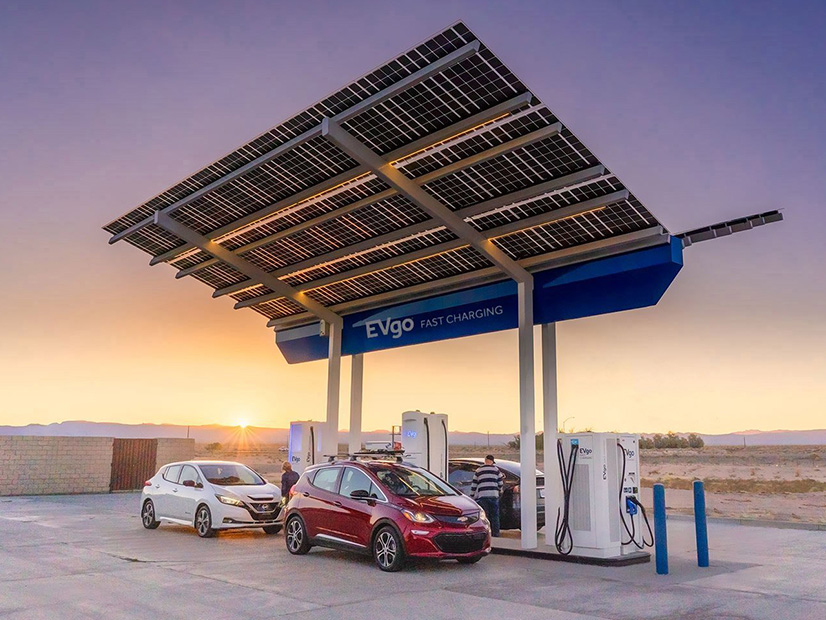Electric vehicle drivers in California say they’re having trouble using public charging stations, either because the station is not working, the driver isn’t a member of the charging network or there are other issues with payment.
Those are some of the findings of a new report from the California Air Resources Board (CARB). The report is a technical review of the agency’s Electric Vehicle Supply Equipment (EVSE) Standards, a regulation adopted in 2019.
CARB held a workshop on Tuesday to discuss the report’s findings.
The technical review included a survey of 1,290 California drivers to find out what barriers they face at public EV charging stations and what payment methods they have access to.
Among survey respondents, 575 drivers identified membership requirements as a barrier, including not having a charging network membership or not wanting to create one.
Charging station operability issues were a barrier for 439 respondents, while 209 drivers said payment was a problem.
Respondents listed several other barriers: 224 drivers said the stations were too expensive; 164 said they’re too complicated; 121 said they’re too hard to find.
And one workshop participant pointed to additional charging station issues. Charging hoses don’t reach the car or won’t release when the charge is completed, the participant said. The screens are impossible to read when the sun hits them.
“The list goes on,” the participant said in comments read by the workshop moderator. “If the station does not deliver the charge, it is useless to the driver, no matter the reason.”
Stephanie Palmer, an air resources engineer at CARB, said the agency is aware of the problems. Some of the issues are outside the scope of the technical review, she said, but will be researched by CARB and the California Energy Commission as part of other programs.
EVSPs Surveyed
Electric vehicle service providers (EVSPs) and credit card companies were also surveyed as part of CARB’s technical review.
The network providers rely mainly on contactless “tap” technology for charging station payment, according to the report. The use of tap-enabled cards is growing in the U.S., but the cards currently account for only a small percentage of cards in use, the report said. In contrast, EMV chip payment cards are widely used.
None of the EVSPs surveyed accept cash at their charging stations.
Several of the EVSPs that participated in the survey said their national uptime ranges from 95% to 98%. The report noted a possible contradiction between the responses of EVSPs and drivers who encountered charging station operability issues.
“The data from the two surveys suggest there may be a disconnect between what drivers are experiencing and what the EVSPs are reporting, and more work is needed to understand this issue,” CARB said in its report.
One workshop participant said that CARB needs to define “uptime,” which station operators may define as times when there is power to the station.
“This does not mean the station works and is able to provide the asked-for energy,” the participant said in a comment read by the moderator. “There are so many ways it can fail.”
Palmer said CARB plans to explore the issue further.
Payment Requirements
CARB adopted the EVSE Standards regulation in 2019 to fulfill a mandate of Senate Bill 454 of 2013.
The standards are intended to reduce barriers to accessing public charging stations.
“Everyone should be able to use electric vehicle charging stations in a secure and reliable way,” CARB said in explaining the background of the regulation.
The regulation applies to all EVSPs operating publicly accessible Level 2 or DC fast chargers in the state. It doesn’t cover private EV charging, including charging networks run by Tesla (NASDAQ:TSLA) or Rivian.
Requirements regarding payment methods took effect recently or have not yet taken effect.
Under the regulation, DC fast chargers installed on or after Jan. 1 of this year must accept EMV chip-enabled cards and mobile payments. Those requirements will also apply to Level 2 chargers installed on or after July 1, 2023.
All EV charging stations, whether existing or newly installed, must meet the payment requirements by July 1, 2033.
The regulation also includes a requirement for EV charging stations to allow payment by members of an EVSP network as well as by non-members.
Under the regulation, EVSPs must post all fees associated with a charging session. And a sticker at each charging station must state the voltage and amperage capabilities of the unit.
Next Steps
CARB will accept public comments on the technical review through 5 p.m. on Feb. 28.
CARB staff plans to present the report to the agency’s board in April. Staff’s recommendation is to monitor compliance with the EVSE standards regulation without any changes to the regulation at this time.
But the CARB board could decide the regulation needs updating and launch a rulemaking process.




